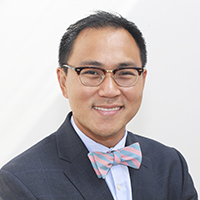Blog Post
Moving Beyond Duty-Hours
Addressing Dissatisfaction Among Medical Trainees
If you want to start an intense debate within the medical community, just talk about duty-hours – the length of a physician-in-training’s shift.

In the New England Journal of Medicine last month, my colleagues and I published our findings from the iCOMPARE study, a cluster-randomized trial of 63 internal medicine residency programs, consisting of over 5,000 trainees. All programs were held to an 80-hour work week standard, but randomized to adhere to either existing shift length limits (e.g., 16-hour work maximums; “standard” arm) or to a “flexible” arm without shift limits or mandatory time off between shifts. We found no differences in the time interns spent caring for patients, time spent in educational activities, trainee perceptions about the right balance between clinical demands and education, or standardized test scores. The key difference was that trainees in their first year (“interns”) in flexible programs were more likely to report dissatisfaction with their training environment, a view the program directors at those sites did not share.
The years leading up to the study brought intense concerns from groups like Public Citizen and the American Medical Student Association about informed consent and the length of permitted hours for trainees at sites randomized to the flexible arm. Since publication, these initial trial results have drawn a wide range of responses, reactions, and perspectives across the medical community, generations of health professionals, and specialties.
As a recent internal medicine resident and chief, I too have my own lived-experience. In particular, as a chief resident, I was deeply involved in structuring the day-to-day work schedule of trainees, cultivating their educational experiences, and supporting the emotional well-being of trainees. Training and chief year were not easy. Each trainee, myself included, starts their own professional and emotional journey during these years. Many trainees undergo changes in their personal life (e.g., marriage, family illness, personal illness, death, and children) while figuring out their identity as a medical professional (e.g., what specialty to choose, how they break bad news to patients, how they deal with challenging patients, and how to achieve professional satisfaction). Given the pressures to mature personally and professionally during this period, it should be no surprise that the combination of long hours, emotionally charged patient interactions, and uncertainty over one’s future could transform into burnout, depression, and, unfortunately, suicides. These challenges are all too common. As a result, preventing burnout and depression has become a critical challenge facing current program directors and professional societies, starting a collective conversation.
In these contexts, the discrepancy in dissatisfaction between program directors and residents should be taken seriously. Two interpretations are possible. First, flexible duty hours may be the wrong approach because it increases dissatisfaction among residents. Alternatively, as the editorial that accompanied the trial notes, the dissatisfaction among residents in internal medicine stands out because it is so much greater than that of participants in the FIRST trial, a parallel trial to the iCOMPARE study but among surgeons. Internal medicine trainees were dissatisfied across the board, flexible or standard, relative to responses from surgical trainees.
Admittedly, the iCOMPARE study was not designed to compare differences between internists and surgeons. However, if professional satisfaction and the minimization of burnout and depression are important goals, which I believe they are, then trying to understand why both study arms produced such dissatisfaction among medicine residents requires a deeper investigation.
To change the current trajectory of dissatisfaction, we need to address what happens during those work hours, not just how long we work.
Yes, there is likely a maximum number of hours of work that is unsafe and there are important questions that remain unanswered, like the effect of shift lengths on sleep deprivation and patient safety. The iCOMPARE Trial group hopes to answer these questions in the coming months.
To change the current trajectory of dissatisfaction, we need to address what happens during those work hours, not just how long we work.
However, to improve trainee satisfaction and mental health, we need to understand how to change this work environment and what works. At the most basic level, this may mean structurally incorporating more educational hours and more time spent with patients. My happiness may be tied greater hours spent solving diagnostic challenges or easing a patients’ journey at the end of life, not hours documenting in front of a computer. I think there are deeper philosophical questions to be answered though. How are we creating a culture of support and openness to struggles, personal or professional, during the work day? Or while away from work? What are the day-to-day tasks that foster dissatisfaction? Is it paperwork and care coordination? It might be. Yet, I would happily write a work note to help ensure that my patient with back pain can take the day off to see physical therapy. I am less satisfied waiting on the phone to get a prior authorization for a needed procedure or filling out mountains of forms during my lunch break so insurers will pay for a patient’s rehab stay.
The iCOMPARE study helped answer and will continue to answer many lingering questions pertaining to shift lengths. But, like many rigorous trials, creates insights so that other, equally important, questions emerge. As someone deeply invested in the success of other health professionals, I hope this trial helps us shift the intense attention paid to duty-hours towards finding the ingredients that lead to greater personal and professional satisfaction. That’s the goalpost that matters to me.
Krisda H. Chaiyachati is the Medical Director for Penn Medicine’s FirstCall, an Associate Fellow at the Leonard Davis Institute of Health Economics, and was the coordinator for the time-motion observation component of the iCOMPARE trial. Other study investigators include LDI Senior Fellows David Asch, Jeffrey Silber, Dylan Small, Kevin Volpp, and Judy Shea.